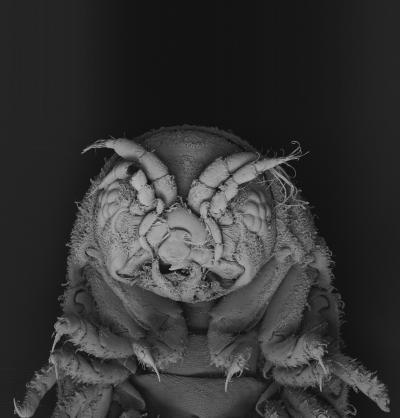UK-US team characterizes key enzyme from wood-eating Gribble (yes, Gribble)
http://www.greencarcongress.com/2013/06/gribble-20130605.html#more
Gribble-->

Using advanced biochemical analysis and X-ray imaging techniques, researchers from the University of York, University of Portsmouth and the National Renewable Energy Laboratory in the USA have determined the structure and function of a key enzyme used by the gribble (earlier post) to break down wood.
The gribble (Limnoria quadripunctata), a marine wood-borer with efficient gut enzymes for breaking down woody material, is the focus of one of the research hubs in the UK’s Bioenergy Center, established in 2009. The findings, published in Proceedings of the National Academies (PNAS), will help the researchers to reproduce the enzymes effects on an industrial scale in a bid to create sustainable liquid biofuels.
Overall, this study suggests that marine cellulases offer significant potential for utilization in high-solids industrial biomass conversion processes.
—Kern et al.
To create liquid fuel from woody biomass such as wood and straw, the polysaccharides (sugar polymers) that make up the bulk of these materials have to be broken down into simple sugars. These are then fermented to produce liquid biofuels. This is a difficult process, and making biofuels in this way is currently too expensive.
To find more effective and cheaper ways of converting wood to liquid fuel, scientists are studying organisms that can break down wood in hope of developing industrial processes to do the same.
